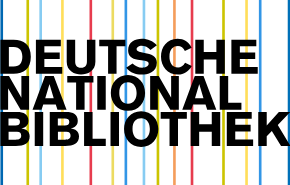ECONOMIC EFFICIENCY OF USING RENEWABLE ENERGY SOURCES IN AGROTOURISM
DOI:
https://doi.org/10.55640/Keywords:
renewable energy, agrotourism, rural areas, energy efficiency, economic efficiency, sustainable development, foreign experience.Abstract
This article analyzes the economic aspects of increasing energy efficiency in rural areas through the use of renewable energy sources (RES) in agrotourism. The integration of RE and agrotourism is important in ensuring sustainable development in the agricultural and tourism sectors. The study analyzes the economic aspects of this integration, including factors such as reducing energy costs, creating new jobs, and developing local infrastructure. Foreign experience is also studied and the possibilities of its application in the conditions of Uzbekistan are considered.
References
1.PQ-3012-no. 26.05.2017. On the Program of Measures for the Further Development of Renewable Energy, Improving Energy Efficiency in Economic Sectors and the Social Sphere in 2017-2021 https://lex.uz/docs/-3221894
2.No. 452 dated 23.07.2020. On measures for maintaining state accounting of renewable energy sources and energy generated from them https://lex.uz/ru/docs/-4909794
3.United Nations Development Programme (UNDP). The Outlook for the Development of Renewable Energy in Uzbekistan. https://www.undp.org/sites/g/files/zskgke326/files/migration/uz/uzb_un_uzb_4_The_Outlook_for_the_Development_of_Renewable_Energy_in_Uzbekistan.pdf
4.Types of Renewable Energy Sources | Inspire Clean Energy https://www.inspirecleanenergy.com/blog/clean-energy-101/types-of-renewable-energy-sources
5.https://minenergy.uz/uz/news/view/2612
6.Renewables Global Status Report - REN21 https://www.ren21.net/reports/global-status-report/
7.Germany’s Renewable Energy Act. https://www.bmu.de/en/topics/climate-adaptation/energy-efficiency/renewable-energy
8.South Korea’s Renewable Energy Policy. Korea.net : The official website of the Republic of Korea https://www.korea.net/
9. China’s Solar Energy Initiatives. IEA – International Energy Agency https://www.iea.org/
10.Ergashboyev, M. J. o'g'li ., & Eshmuradov, U. T. (2024). O'ZBEKSTONDA AGROTURIZMNI RIVOJLANTIRISHNING TASHKILIY-USLUBIY ASOSLARI. INTERNATIONAL SCIENCES, EDUCATION AND NEW LEARNING TECHNOLOGIES, 1(11), 19–26. https://doi.org/10.5281/zenodo.14518213
11.Ergashboyev, M. J. o'g'li ., & Eshmuradov, U. T. (2025). AGROTURIZM – QISHLOQ XO'JALIGIDA YANGI DAROMADLAR KALITI. INTERNATIONAL SCIENCES, EDUCATION AND NEW LEARNING TECHNOLOGIES, 1(12), 36–41. https://doi.org/10.5281/zenodo.14601764
12.Agritourism Development In Italy And New Zealand: A Comparative Analysis And Implications For Uzbekistan | American Journal of Advanced Scientific Research https://search.app/dvBv3QmTB1TE3WhVA
13.N.T.Toshpo‘latov, D.B.Qodirov. Renewable Energy Sources https://staff.tiiame.uz/storage/users/748/books/tOnSLwigSTquMNXQpnibZS3xtH41rnqSVwBkZG0H.pdf
Downloads
Published
Issue
Section
License

This work is licensed under a Creative Commons Attribution 4.0 International License.
Authors retain the copyright of their manuscripts, and all Open Access articles are disseminated under the terms of the Creative Commons Attribution License 4.0 (CC-BY), which licenses unrestricted use, distribution, and reproduction in any medium, provided that the original work is appropriately cited. The use of general descriptive names, trade names, trademarks, and so forth in this publication, even if not specifically identified, does not imply that these names are not protected by the relevant laws and regulations.







